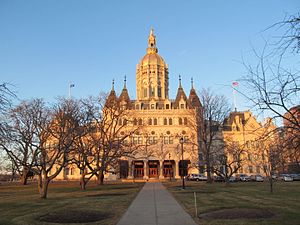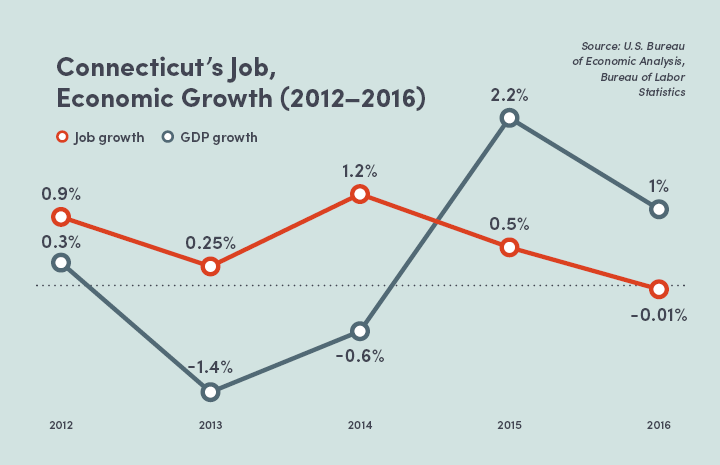Bipartisan Budget Votes Reflect ‘What Most People Want’

The events of the last week highlight the need for true bipartisanship in solving the state’s fiscal problems.
Why bipartisanship? Because we desperately need the best ideas from both sides of the aisle.

Connecticut needs a change in direction to drive job and economic growth.
Last Friday and Saturday’s votes in the Senate and House were a reflection of what most people are looking for—a new approach, a break from policies that haven’t worked, and ultimately, a risk that could lead to greater rewards.
Despite a likely veto, that vote was exactly what state residents and businesses needed to see: those with different views working together to improve Connecticut for everyone.
This didn’t happen overnight. Many factors contributed to our short- and long-term fiscal problems.
Sluggish economic and job growth are both a cause and an effect.
Policy Choices
Well-intended but misguided public policies damaged Connecticut’s business climate, and the resulting economic stagnation has had a harmful impact on revenue.
As state government twice raised taxes on businesses and individuals in attempts to close budget gaps, what resulted was predicted by some (and should have been expected by everyone)—revenues that fell well short of projections.
The lack of predictability chilled investment in the state and caused some companies and individuals to seek opportunities elsewhere. This includes everything from large corporations relocating headquarters to young, talented individuals moving to other states to start their careers.
CBIA’s 2017 Survey of Connecticut Businesses confirmed this. The survey found that uncertainly and unpredictability impact how companies are doing here.
When asked what factors are impacting business growth, the top answer was the state’s high cost of living (78 percent), followed by the uncertainty and unpredictability
of legislative decision-making (72 percent), high business taxes (69 percent), government mandates (68 percent), and inadequate skilled job applicants (55 percent).
The August employment numbers reflect this too. Connecticut lost 5,000 jobs over the last two months. Our 4.8% unemployment rate is the region’s highest and our recovery rate from the economic downtown the slowest (78%).
Time for Change
The solution to our fiscal challenges is not easy, especially in these difficult economic times when we are searching for more revenue to avoid spending cuts. Nonetheless, lawmakers simply must end the damaging cycle of deficits followed by tax hikes followed by more of the same.
The time for policy change is now.
We are not going to help cities and towns, hospitals, our neediest citizens, or others who rely on state government if we don’t have greater economic growth.
Our state has tremendous economic assets and potential: world-class businesses, a great workforce, excellent educational institutions, and much more.
Most people want a new approach, a break from policies that haven't worked.
But unless we do a better job of nurturing our economy, we will continue to trail other states in the stiff competition for investment and talent.
The actions of those in the legislature who defied convention will be met by either recriminations or calls for cooperation.
Only the latter will provide the taxpaying and voting public what they deserve and expect—the very best our elected officials can produce by working together.
This is a very serious time in Connecticut, and not just because of impending budget cuts.
'Fork in the Road'
We have reached the proverbial fork in the road, with one path leading to continued fiscal uncertainty and economic mediocrity and the other to fiscal stability and economic vitality.
What does our next state budget need?
It needs a strong spending cap that ensures funding for government priorities, but doesn't allow costs to be shuffled in and out.
It needs other long-term structural reforms like a stronger cap on borrowing, required legislative votes on union contracts, and further changes to pension and other benefit costs at the end of the current union contract.
And as noted earlier, more broad-based tax increases will only worsen, rather than solve, the problem.
It’s critical that everyone now comes together. A true, committed bipartisan approach will lead us down a better path.
All options should be on the table, and the decision time is at hand.
And the business community is eager to help move the process forward toward a budget that fosters, rather than impedes, economic prosperity for everyone.
Joe Brennan is CBIA's president and CEO.
RELATED
EXPLORE BY CATEGORY
Stay Connected with CBIA News Digests
The latest news and information delivered directly to your inbox.


